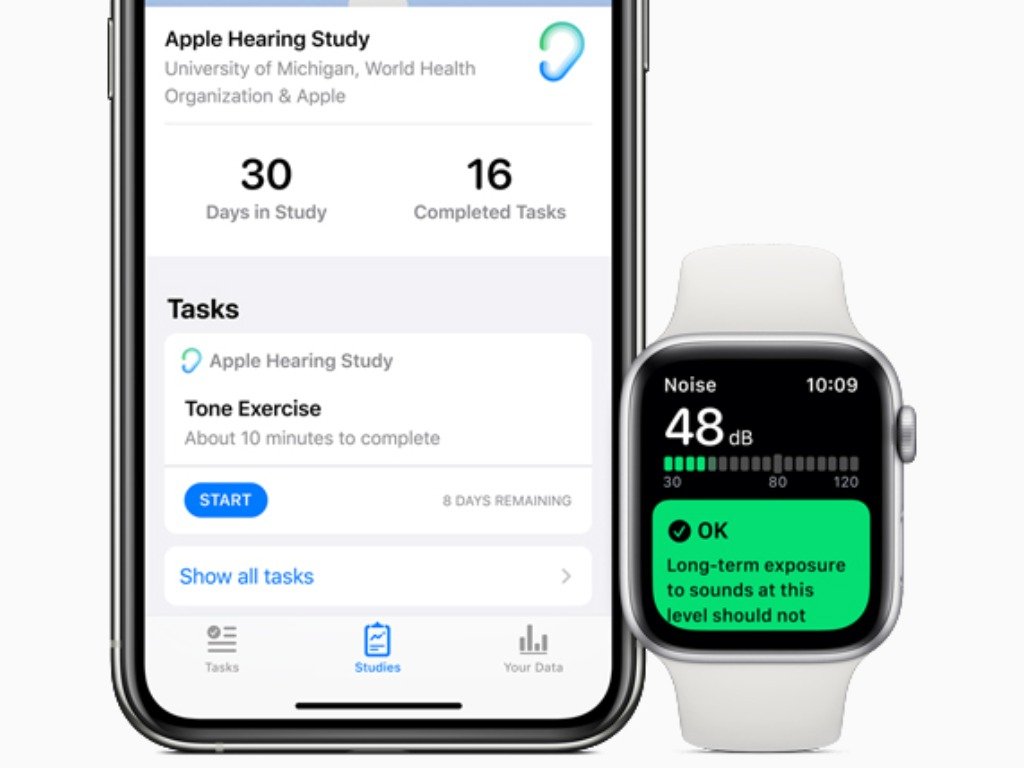Apple says the data is unprecedented.
What you need to know
- Apple has shared the results from its Apple Watch hearing study.
- It says a quarter of all participants were exposed to more daily average noise than was recommended by the WHO.
- It also says that one in 10 participants has their headphones turned up too high.
Apple has shared data from its Apple Watch hearing study, revealing insights into the hearing health of its participants.
From Apple:
The Apple Hearing Study allows users to participate and contribute to their long-term hearing health data from their Apple Watch and iPhone, allowing for study participation at a scale never seen before. The new insights generated leveraging this unprecedented data demonstrate that 25 percent of participants experience a daily average environmental sound exposure (which can include traffic, machinery, public transport, and so on) that is higher than the WHO recommended limit. Also, nearly 50 percent of participants now work, or have previously worked, in a loud workplace. As noise exposure has shown an impact on hearing, it's important to be aware of surroundings. Checking noise levels with the Noise app on Apple Watch can be an effective way to be more aware of sound exposure.
As mentioned, the study also shows one in 10 participants' headphone exposure was higher than the WHO limit, which may indicate volume being too high, or at a certain level for too long. 10% of participants have been diagnosed with hearing loss, and 20% have hearing loss compared to WHO standards.
Perhaps more importantly, nearly half of the participants haven't had their hearing checked in at least 10 years, even though a quarter said they experience ringing in their ears a few times a week or more.
Apple further highlighted how many products and features from the company can help hearing, including Transparency Mode, the Apple Watch MNoise app, Headphone Accommodations, and more.
You can read the full report here.









0 comments:
Post a Comment